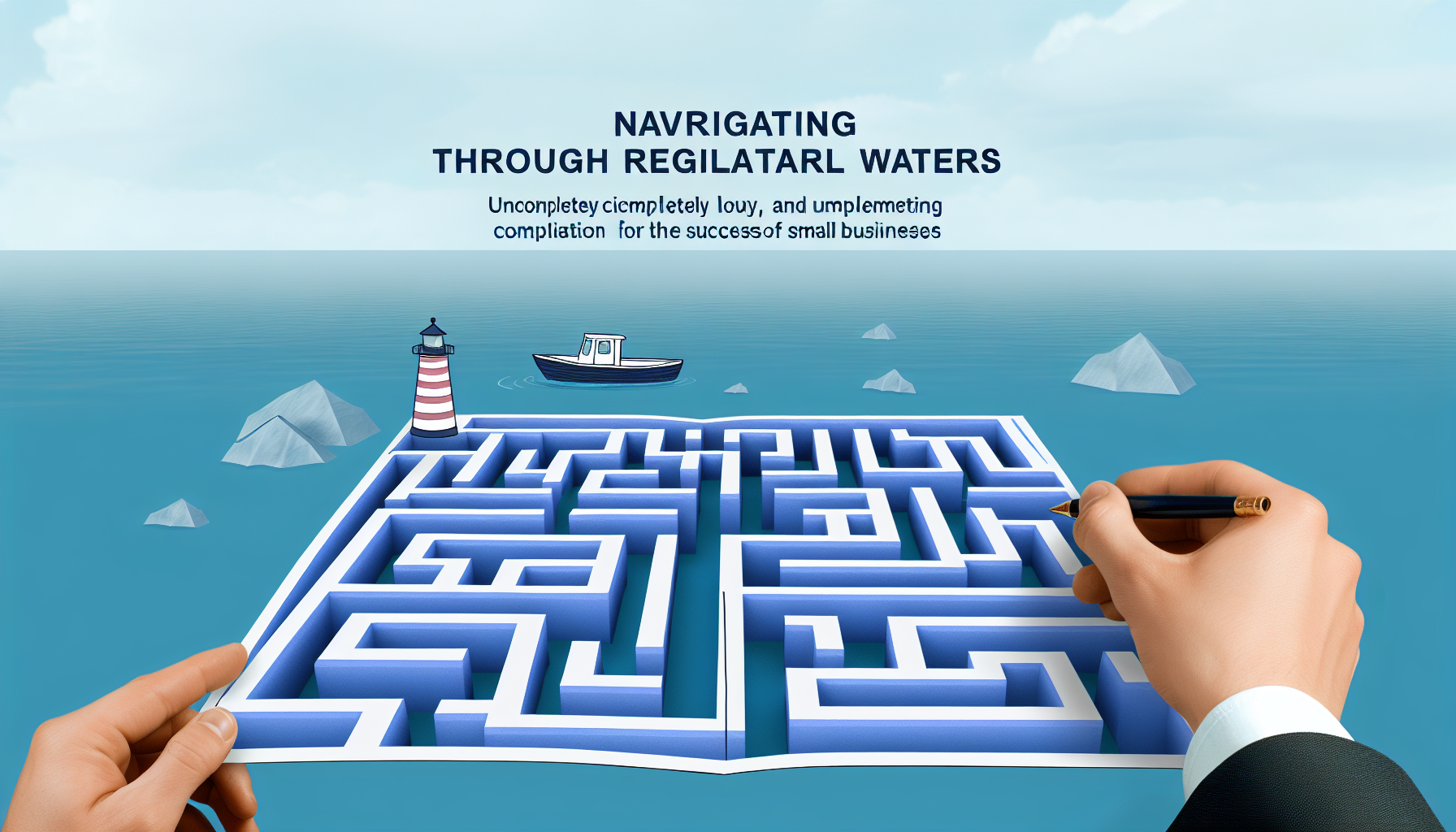Navigating the Maze: Essential Guide to Regulatory Compliance for Small Businesses
Regulatory compliance can be daunting for small business owners. With a plethora of laws and regulations that vary by industry, location, and other factors, understanding and adhering to the necessary requirements is not just a legal imperative—it’s an essential component of building trust with customers and setting your business up for long-term success. This guide aims to simplify the maze of regulatory compliance for small businesses.
Understanding the Importance of Regulatory Compliance
Regulatory compliance refers to the process of ensuring that your business follows all the relevant laws, regulations, standards, and ethical practices that apply to your industry. Achieving compliance not only helps you avoid penalties and legal issues but also safeguards your business reputation, enhances customer confidence, and potentially opens up new business opportunities.
Key Areas of Regulatory Compliance
- Taxes and Finances: Stay informed about tax obligations, financial reporting requirements, and accounting standards relevant to your business size and type.
- Employment Law: Understand wage laws, workplace safety, discrimination policies, and employee benefits to protect your employees and your business.
- Data Protection: Protect customer and employee data in accordance with privacy laws such as GDPR or HIPAA, depending on your location and industry.
- Industry-Specific Regulations: Stay up-to-date with regulations specific to your business, such as healthcare, food safety, or financial services guidelines.
- Environmental Regulations: Comply with local and federal environmental laws related to waste disposal, recycling, and energy usage, if applicable.
Planning for Compliance
- Conduct a compliance audit: Review your current operations to identify any gaps in compliance. This could involve checking financial records, employee contracts, data security measures, and other relevant documents.
- Develop a compliance plan: Create a structured plan that addresses identified gaps and sets objectives for meeting compliance standards. Assign clear responsibilities and timelines.
- Implement compliance procedures: Put into place policies and procedures that will help your business remain compliant. This may include employee training, updating software for data security, and revising financial reporting processes.
- Monitor and revise: Compliance is an ongoing process that requires regular monitoring. Set up a schedule for reviewing compliance and update your plans as laws and regulations change.
Resources for Staying Compliant
There are plenty of resources available to help small businesses stay on top of compliance issues:
- Government websites provide up-to-date information on laws and regulations, including the IRS for tax issues and OSHA for workplace safety.
- Industry associations often offer guidance on compliance standards for their specific sectors and may provide templates or tools.
- Compliance software can help automate parts of the compliance process, especially for data management and financial reporting.
- Professional advisors, such as lawyers, accountants, or consultants, can provide personalized advice and keep you informed of changes in compliance requirements.
Overcoming Common Compliance Challenges
Small businesses may encounter several obstacles on the road to compliance:
- Limited Resources: Tight budgets and small staff can make it difficult to manage compliance tasks. Prioritize the most significant risks and consider outsourcing or automating where feasible.
- Keeping Up with Changes: Regulations change frequently, and staying informed can be time-consuming. Subscribe to industry newsletters, join professional organizations, or set up alerts for regulatory updates.
- Complexity of Laws: Sometimes regulations are written in legalese that’s hard to decipher. Don’t hesitate to seek clarification from experts or regulatory agencies.
- Scaling Up Compliance: As your business grows, so do your compliance responsibilities. Build scalability into your compliance processes to accommodate future growth.
FAQ: Essential Guide to Regulatory Compliance for Small Businesses
- Why is regulatory compliance important for my small business?
Compliance ensures that your small business operates within the law, therefore avoiding fines and legal issues, enhancing your reputation, and building customer trust.
- How do I know which regulations apply to my business?
Regulations vary by industry, location, and size of your business. Start with government resources, consult with industry associations, and consider hiring a specialist to assist you in identifying relevant regulations.
- What if my business cannot afford compliance costs?
Non-compliance can be more costly than investing in compliance efforts. Look into small business grants, compliance assistance programs, and technology solutions that can help streamline compliance processes and reduce costs.
- How can I stay updated on regulatory changes?
Regularly visit government websites, subscribe to industry publications, become a member of relevant associations, and establish a schedule for reviewing compliance procedures within your business to catch any updates.
- Should I hire a professional for compliance matters?
While you can manage some compliance tasks internally, hiring professionals such as lawyers or accountants can be beneficial for complex areas such as tax law or data privacy regulations.
Conclusion
For small businesses, navigating the maze of regulatory compliance can seem overwhelming, but it’s an essential part of responsible business operation. By being proactive, utilizing available resources, and seeking professional advice when necessary, small business owners can successfully manage compliance and focus on growth. Remember, staying compliant not only keeps your business out of legal trouble; it also builds a foundation of trust with your customers, employees, and the business community.




